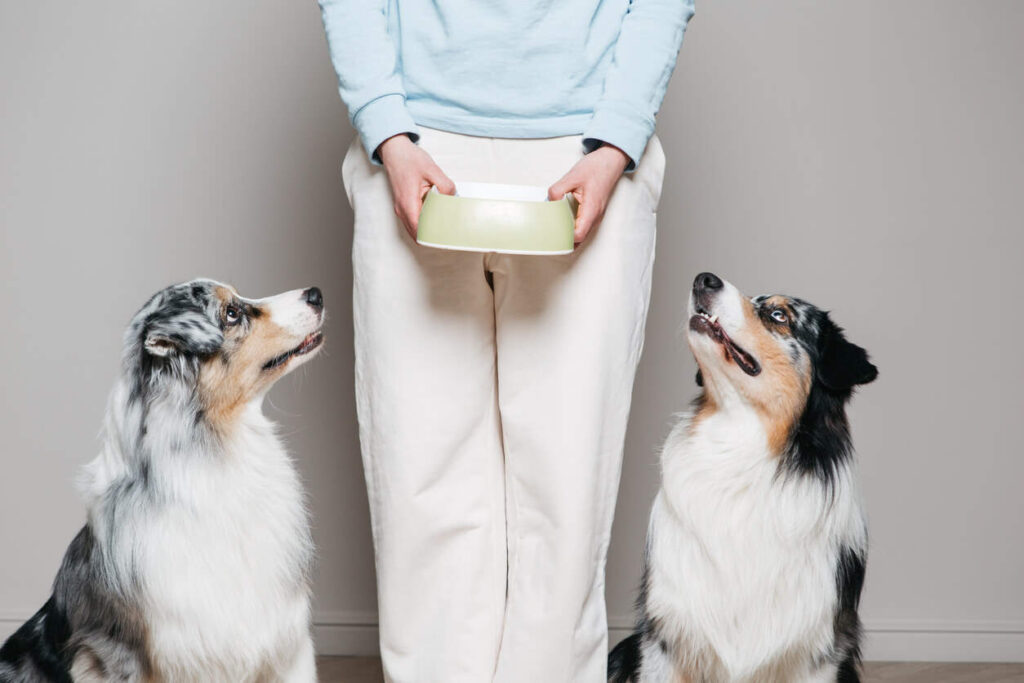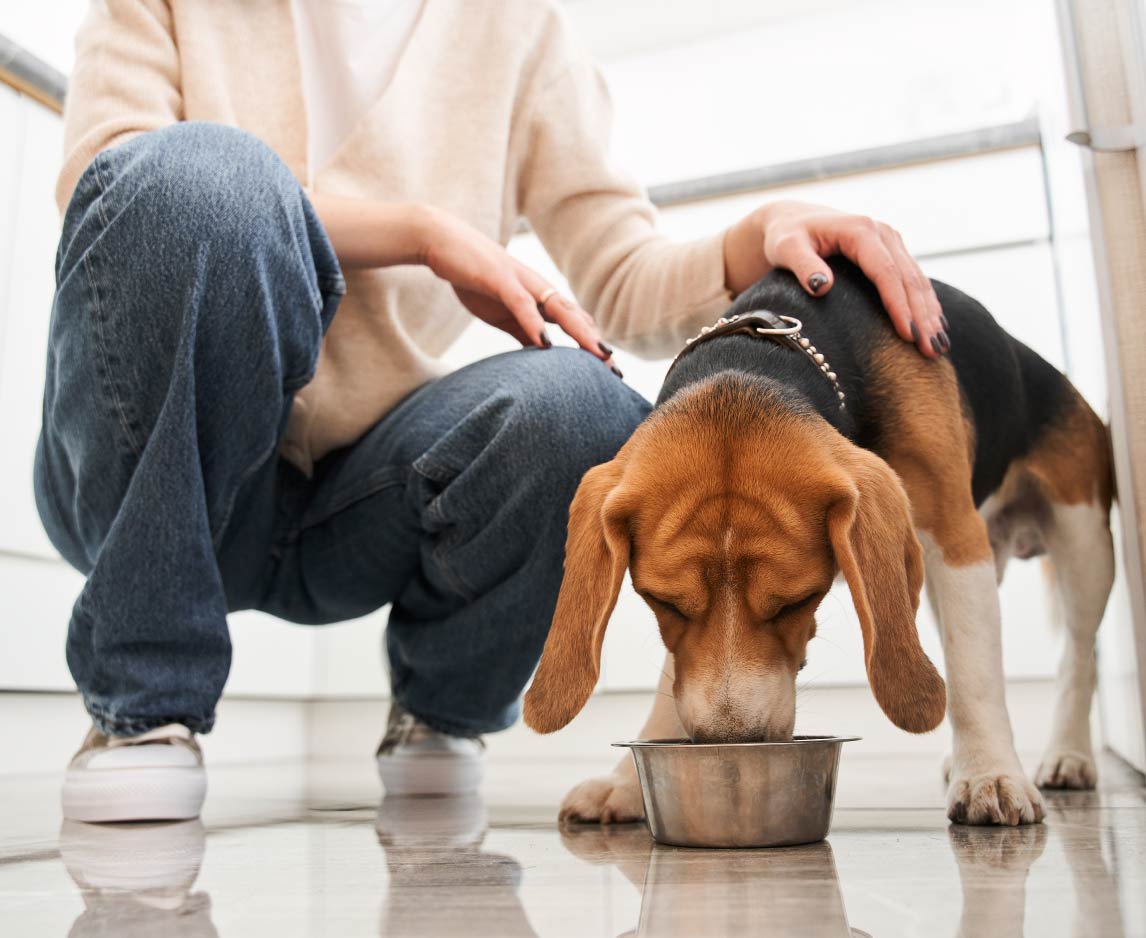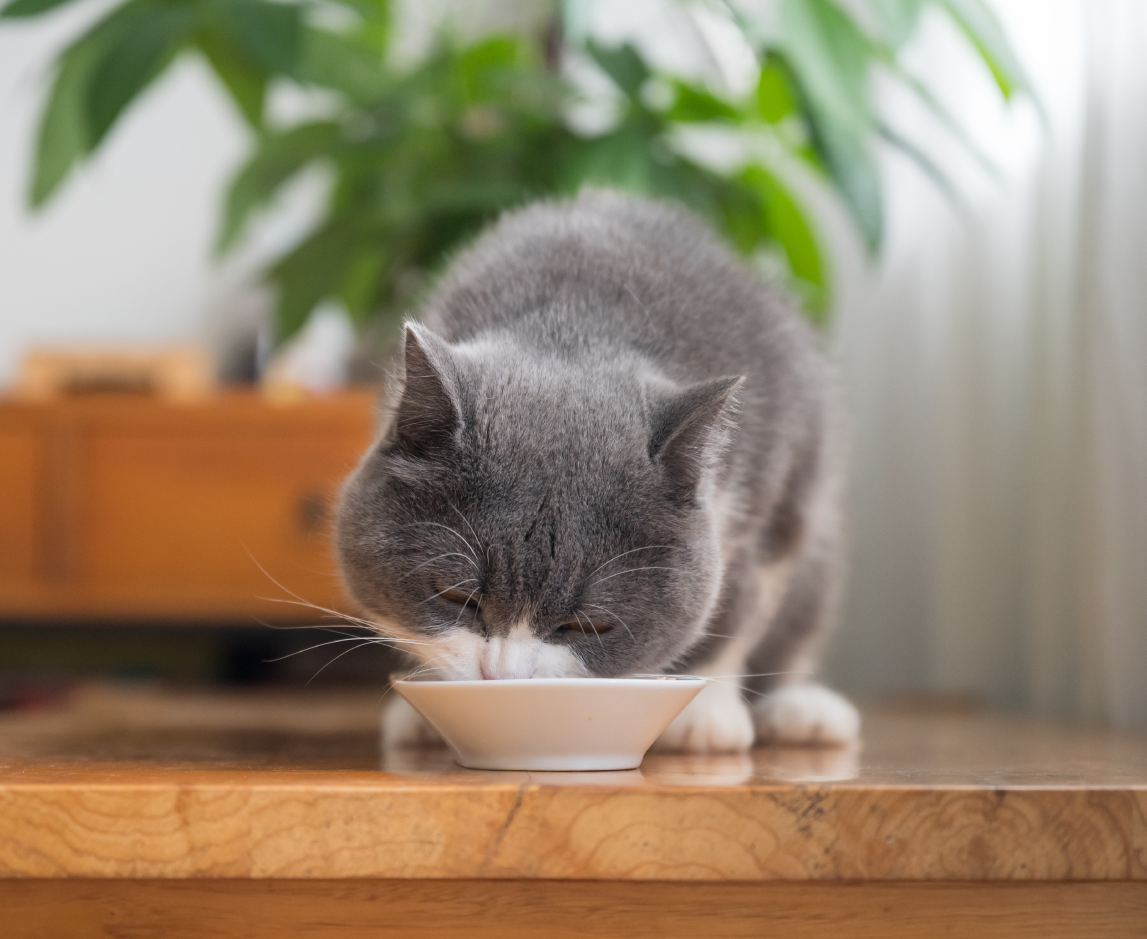Trends in animal nutrition are just as prevalent as any other industry. That’s why it’s important to consider the latest research to optimize your pet’s health and overall well-being. One trend certainly worth the attention is goat milk for dogs. Keep reading for our complete guide and answers to common questions.
What Is Goat Milk?
Goat milk is a type of dairy product known to be lower in lactose than cow’s milk, as it contains a unique protein structure that makes it more digestible for humans and other mammals. In response to growing popularity, goat milk production has risen year over year for a decade, seen in a 60% increase in dairy goat inventory across the U.S. from 2007 to 2017.
5 Benefits of Goat Milk
Goat milk is predominantly known for being easily digestible, but there are other benefits worth exploring when considering it as an addition to your dog’s diet.
1. Hydration
The moisture of goat milk is a great source of hydration for dogs. As with humans, staying hydrated is incredibly important to keep our pets’ bodies in strong working order. Wondering how to tell if your dog is dehydrated? Pay attention to changes in behavior — such as loss of appetite — dry nose, excessive panting and dry eyes and gums.
2. Protein Synthesis
Goat milk is a great source of amino acids, and when incorporated into a dog’s diet helps their body maximize the benefit of protein. This supports a number of functions, including muscle development, cell repair and maintenance and enzyme production.
3. Vision Support
A rich source of Vitamin A, goat milk helps to optimize eye health and function. Antioxidant properties can also help to prevent macular degeneration, which can lead to distortion or loss of vision.
4. Added Calcium
Calcium is integral to bone health and muscle strength, and goat milk has been proven to be a great source of it. Amounts vary depending on the animal milk is obtained from, but there is generally 327 mg of calcium in one cup of goat milk compared to 300 mg in the same amount of cow milk.
5. B Vitamins
These vitamins boost digestion while optimizing metabolism and hormone regulation. Vitamin B is also known for supporting the nervous system and promoting overall mental well-being through healthy cognitive function.
Goat Milk vs. Cow Milk for Dogs
What is the difference between cow milk and goat milk? From nutritional composition to taste to animal care, there is plenty to consider. Here are some important highlights:
- Goats are regarded as lower maintenance and less expensive to keep on a dairy farm than cows. Feed costs are typically lower, and the animals themselves are easier to handle.
- With slightly less lactose than the milk of cows —less than one percent— goat milk can be an option for dogs with poor reactions to cow dairy.
- Goat milk is a denser energy source than cow milk with a higher fat and calorie makeup.
- There is a clear difference in taste when comparing goat milk to cow milk. (Goat milk is slightly sweeter.)
Is Goat Milk Good for Dogs?
Canine nutrition can be complex, and the addition of anything to your pet’s food warrants a conversation with their veterinarian. When it comes to goat milk for dogs, the American Veterinary Medical Association (AVMA), has serious concerns about harmful bacteria — such as listeria and E. coli — when consumed raw, or unpasteurized. It’s the pasteurization process that uses mild heat to eliminate pathogens and extend the shelf life of a product.
Keep in mind that goat milk is calorically dense, high in fat and not nutritionally complete and balanced on its own. It is best used in moderation as a supplement to a healthy diet.
How to Safely Feed Goat Milk to Dogs
We compiled these top tips for safely ensuring that your dog gets the most out of goat milk:
- Start slowly! This is true with any new addition to your dog’s routine. Try gradually working your way up to a desired amount. This will give you time to notice signs of digestive upset or unease before they potentially become severe.
- Be mindful of the calories and fat from goat milk and the contribution to a dog’s caloric consumption. Remember, at around 20 calories per ounce, goat milk contributes calories while hydrating.
- The appeal of goat milk coupled with a dog’s high thirst drive make it a relatively easy addition as a topper for dry food, mixed with wet food or as a treat on its own. Try freezing goat milk into cubes and give it as a special treat on a warm day!
- Four of our latest RAWZ recipes feature goat milk, allowing you to incorporate it into your dog’s diet and forget the worry of overdoing it. Check out our Shredded Beef, Pumpkin and Sweet Potato, Beef and Salmon Stew, Chicken and Beef Stew, and Chicken and Chicken Liver offerings.
FAQs
Can dogs drink milk?
As is the case with most nutritional questions, this answer lies in the details, specifically the type and quantity of milk consumed. Lactose, a sugar present in milk, plays a huge role in how it will be digested. Lactose intolerance is the primary culprit of gastrointestinal discomfort, so finding a milk with lower lactose levels can be beneficial. For instance, goat milk has roughly 12% less lactose than cow’s milk. This could make enough of a difference for a canine to tolerate dairy.
Is goat's milk safe for lactose-intolerant dogs?
A dog with severe lactose intolerance should avoid milk sugars entirely. However, canines with milder lactose intolerance will probably find digesting goat milk less severe than milk from cows.
Can goat's milk be used for puppies and senior dogs?
It is always important to keep supplemental feeding to less than 10% of a dog’s daily calorie consumption. With any dog, additions to their feeding routine need to be done gradually. Senior dogs in general have more difficulty digesting milk than younger ones. Puppies can typically tolerate goat milk best and benefit from its dense nutrient profile while they require more calories to grow.
What is the recommended serving size of goat milk for dogs?
Each dog has its own unique nutritional needs based on age, activity level and health history. It is best to consult with a veterinarian about how much goat milk to incorporate into their diet and how frequently it should be added.
You can check out our goat milk recipes for dogs, and everything else we have to offer, at your nearest RAWZ retail partner.





